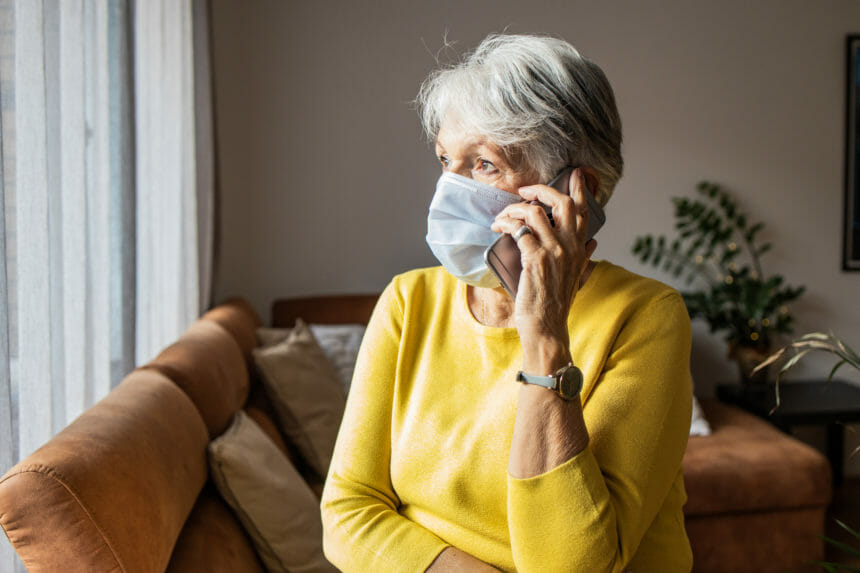
Although vaccination has greatly reduced the risk of severe COVID-19 for older U.S. adults, many say that getting the jab hasn’t translated to peace of mind, according to a nationally representative survey of more than 1,000 Americans aged 50 and older.
“Those who are vaccinated are more worried about infection from the virus, are more likely to practice social distancing, and are more likely to describe their mental health as worse than last year compared to those who are not vaccinated,” researchers at the AP-NORC Center for Public Affairs Research at the University of Chicago reported.
Most older adults say they are taking precautions to avoid infection, according to the poll. But this group of cautious seniors also rates their quality of life, mental health and social activities lower than those who are not taking extra steps.
What’s more, these worries have escalated over the summer, the researchers found. In June, 17% of respondents were “extremely or very worried” about COVID-19. This percentage increased to 27% in July and then to 36% among respondents to the latest poll, conducted between Aug. 20 and 23. These seniors said that they fear getting infected, or that someone in their family will contract the SARS-CoV-2 virus.
Only 14% of this group has the same anxieties about influenza, the researchers added.
Social life concerns
Americans in this age group generally say that they are more optimistic than pessimistic that they will be able to fully return to their pre-pandemic activities in the next year. But only 15% said that their social relationships and emotional health have recently improved, and 1 in 4 reported worsened social life and relationships in the past year.
And when compared to their less-worried peers, older adults who were most worried about COVID-19 were also more likely to report a lack of companionship (21% vs. 9%) and social isolation (21% vs. 7%) over the past four weeks.
Despite these challenges, 34% of respondents reported using mental health services less frequently than they were before the pandemic, while 6% said they now use these services more often.
Coping strategies
How are these worried seniors coping? For some, video chat and social media activity have replaced in-person visits with friends and family, volunteer work, attending religious services, and talking with neighbors, the researchers said.
Fully 43% of respondents report using video chat software such as Zoom or Facebook Messenger more often since the beginning of the pandemic, while 33% engage with social media more often.
The report and further poll results can be found on the AP-NORC website.



